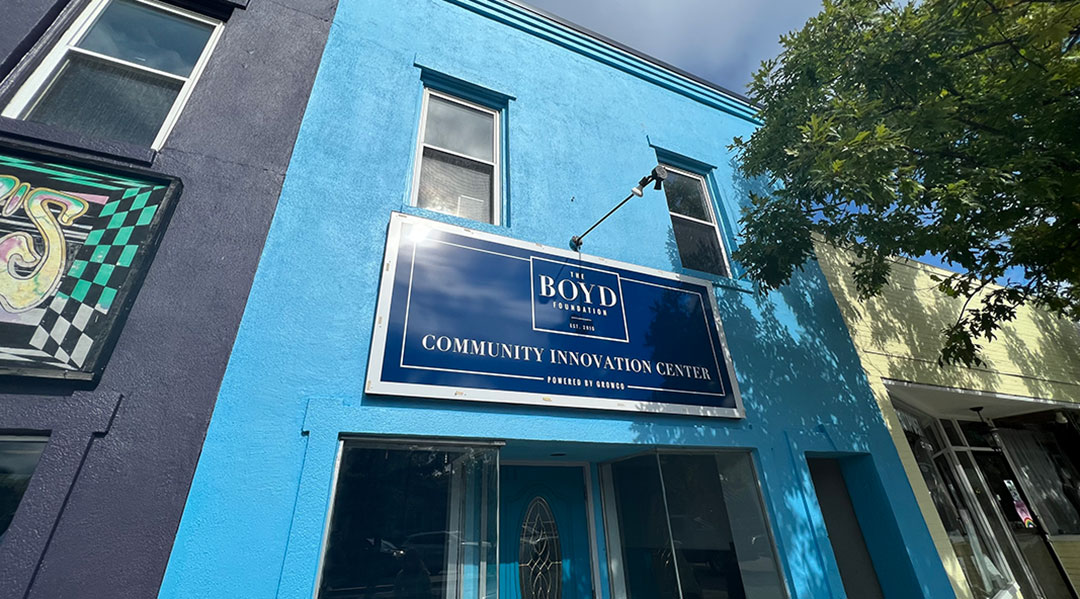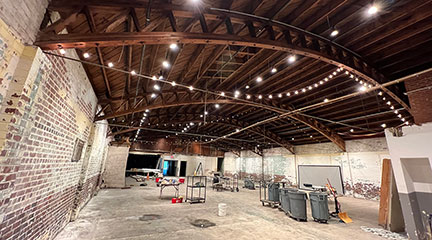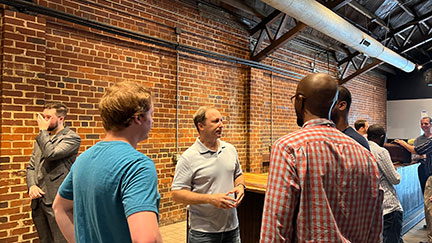The Boyd Foundation Community Innovation Center opened in July, and it is an entrepreneurial hub for technology businesses. Photos by Stephen Pastis
Chris Heivly, the co-founder of Mapquest and a career investor, has spent the past year working with Columbia leaders to build a new vision for the city.
The Boyd Foundation Community Innovation Center, a Five Points venture that opened in July, is the first step of that shared vision. The center is starting to help local technology businesses by creating a grassroots community of startups that is “by, with and for entrepreneurs” – the first of its kind in the Midlands, according to Heivly.
The center is run by GrowCo, a non-profit that works to grow entrepreneurship in Columbia, and The Boyd Foundation, which funded the project with $1 million, in part for furnishing the space. GrowCo said it will continue to raise money going forward.
Joe Queenan, GrowCo’s interim executive director, and Heivly are leading the project.
“There’s not too many people in this world who have been figuring out how do you build, augment, grow, what we call a startup community,” Heivly said. “I can’t pretend that I have all the answers — or even some of the answers. But I have kind of a set of experiences that I bring.”
Heivly, who’s based in Durham, North Carolina, has been involved with Columbia since May of 2021. That’s when a group of local public and economic officials brought him in to help foster a start-up community. The Columbia group noticed his work in furthering the entrepreneurial scene in the Durham area’s Research Triangle Park.
Heivly sold MapQuest, a digital location service, for nearly $1.2 billion in the early 2000s.
His 2021 report found that the Midlands lacked a creative, self-supporting atmosphere needed for startups to thrive. Startups and entrepreneurs were disconnected from potential support and a mentorship community, he found.
The Boyd Foundation Community Innovation Center’s first goal was simple — gather entrepreneurs weekly for “Tech Beans,” a simple cup of joe.
“I got a couple of gallons of coffee and just got people together,” Queenan said. “And that little act has probably made more of a difference in Columbia in the last year than anything that we’ve done in the past 10 years.”
Jeff Spencer, 38, is a Citadel graduate and a South Carolina native. Tech Beans, he said, has made a difference in his newfound career in the business.
“Entrepreneurship is a very popular thing – tech entrepreneurship in Columbia is not,” Spencer said. “When I built my app, people looked at me funny. When somebody is creating a construction company, everybody applauds and salutes that. Everybody was like, what is this? Is this guy going through a midlife crisis kind of thing? Because tech is different.”
Spencer started his app — Playfora, an app that helps groups raise money — last year. He recently received venture capital funding. Without help from Heivly and Tech Beans, he wouldn’t have been confident in pursuing his app, he said.
Spencer’s mindset is the future of the technology community in Columbia, Queenan said.
Besides Tech Beans and a handful of upcoming events, the center is being built in the spot previously home to the White Mule on Saluda Avenue. The location is specific to the vision of the project, said George Bailey, president of the Boyd Foundation.
Five Points is “the place where young people want to be,” Bailey said.
“The USC students are showing up,” Queenan said. “Benedict (College) students are showing up. Most of the deans at Benedict show up on a regular basis, and I think that just kind of shows the level of engagement. Everyone’s welcome. And people vote with their feet.”
The incubator is not the area’s first venture aimed at helping technology startups. The South Carolina Research Authority, the USC/Columbia Technology Incubator and SOCO, for example, have been open for several years.
“The problem with most of the efforts in Columbia is that these places are run by non-entrepreneurs,” Heivly said. “And they’re very structured and engineered, like you would try to run a large company. And startup communities are the opposite of that.”
Chad Hardaway, director of the University of South Carolina’s Office of Economic Engagement, describes the new venture as something that takes Columbia one step closer to a profitable technology market. These organizations do not see each other as competition, but as a network that provides complementary resources, Hardaway said.
“At the end of the day, what they’re doing is the other half of the equation,” Hardaway said. “For us (at USC/Columbia Technology Incubator), our job is to listen to what comes out of founder discussions and make sure we continue to pivot and provide that support that they need.”
For now, those involved with the new project understand the difficulty they face in building a nearly non-existent business scene, Queenan said. He describes it as as 20-year path that changes every day.
“It’s a journey,” Queenan said.
ABOUT THE JOURNALISTS
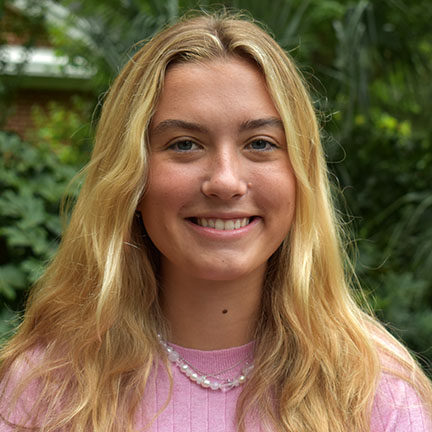
Audrey Elsberry
Elsberry is a senior journalism major and outreach director for the student-run Daily Gamecock. She minors in criminal justice and retail because she can’t choose between covering crime or fashion. Elsberry has written about repurposed cigarette vending machines and the importance of investing in local infrastructure. In her free time, she crochets, paints and makes her own jewelry.
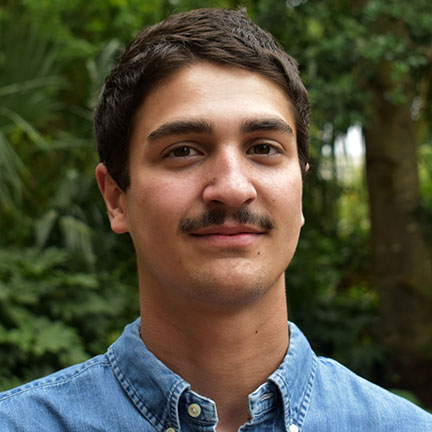
Stephen Pastis
Stephen Pastis is a senior journalism major at USC, where he is the arts and culture editor of his college paper, The Daily Gamecock. He writes about state politics, Columbia culture and technology. He is also working on an investigative story into the intricacies of trash management in the state. Most recently, he covered state politics for The State Newspaper as an intern, reporting on primary elections, abortion and immigration.

